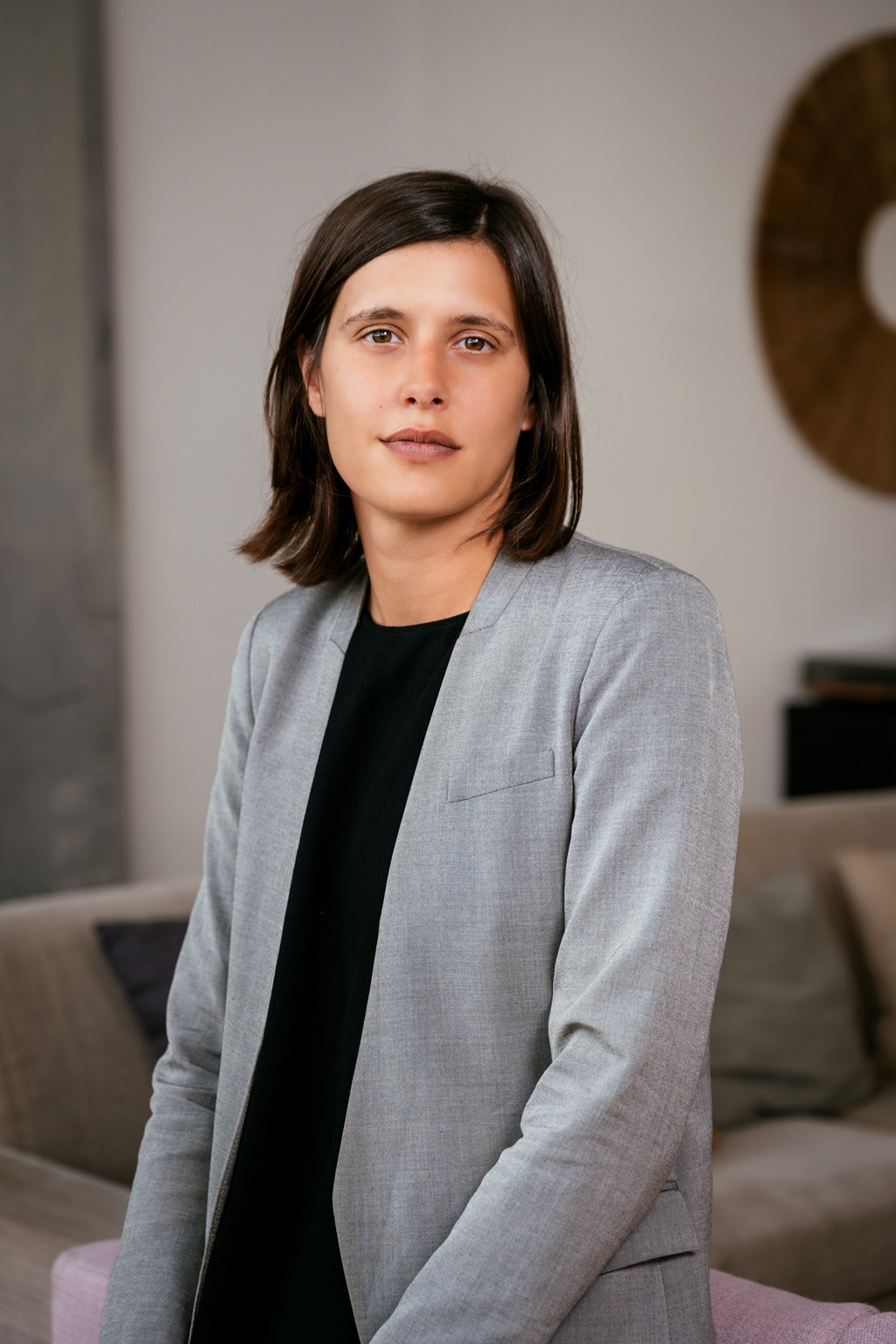Teresa Vega, associate at Gaillard Banifatemi Shelbaya Disputes
“Storytelling is a big part of arbitration!”
Do you remember your first encounter with arbitration?
I studied law in Argentina and my university in Buenos Aires offered a double degree in Argentinian and French law. That was where I first learned about arbitration.
The context in which I came to discover international arbitration is the 2001 economic crisis and the de-pegging of the Argentine Peso from the US dollar, as a result of which many foreign investors considered that they had been flouted, especially when they had received assurances from the Argentine state that they could continue to apply certain tariffs indexed to the dollar. This led to a wave of investment arbitration cases against Argentina, at a time when the investment arbitration discipline was still developing. These cases contributed to forge investment law worldwide. From a legal, cultural and theoretical point of view, it was something we studied in university. Then, by coincidence, I found an internship where I worked on arbitration cases, giving me some practical experience to complement this theoretical perspective.
When did the love affair begin?
Probably during my first internship in Argentina. At the time, I also drafted commercial contracts for start-ups and companies. This is something that also interested me, but I quickly realized that I liked litigation too much!
When did it become obvious that you would specialize in arbitration?
During my internship at Shearman & Sterling – my first arbitration internship in France. After Argentina (between 2007 and 2013), I earned a Master’s degree in France (at Paris 1 Panthéon-Sorbonne University) in International Trade Law and sat for the Bar exam. I immediately began working on some very interesting cases which stimulated both my curiosity and interest in strategic thinking.
Can you recall the very first case you handled?
Yes, it was an investment arbitration against Algeria – we represented Algeria against a Luxembourg company controlled by an Egyptian telecom billionaire. That became a landmark case on abuse of process in international arbitration.
What did you learn?
We were arguing that the company’s recourse to international arbitration was abusive and that an arbitral Tribunal should not rule on the merits of the dispute. The arbitral case law as it stood at the time was of no help. It was during this arbitration that I learned a very important lesson that has stayed with me ever since: complex situations often require simple solutions! Just because a concept has not been applied to a given situation does not mean it cannot apply.
This is the opposite of the case law you are talking about…
Yes, we are also actors in the development of the law. What I find regrettable, and this is a quite common way of practicing Investment Law, is studying the case law, identifying the majority case law is and building an argument around it, using case law as an argument of authority, often sacrificing legal reasoning in the process. Luckily, this is not our team’s way of doing things.
In this case, would you say that your experience was a help or a hindrance?
Although you are taught legal concepts during your studies and arrive with your conceptual background, you learn to apply such concepts to complex situations once you begin practicing. My experience working within our team taught me that all the basic legal concepts are tools to be applied on a daily basis…
What else did you learn from this first case?
Fulfillment and the joy of practicing this profession in a thoughtful way, and participating in the development of the law. Leaving no stone unturned to figure out the best strategy. These are real intellectual challenges. I also enjoy the advocacy aspect of my work. A considerable part of our work consists in working out how to present a case in order to highlight its strengths while addressing its weaknesses. It’s all about storytelling.
So there’s a lot of storytelling?
The cases that we generally deal with are based on complex sets of facts, also involving very technical aspects. We need to gain a deep and comprehensive understanding of the case – we often work with specialists on certain technical aspects – and act as an interface between the case’s complex factual, technical and legal matrix and the arbitral tribunal who does not necessarily have the same amount of time as we do to delve into all the particulars of the case. This exercise – of digesting and narrating the facts to our client’s advantage – requires good storytelling skills.
Would you say that to be a good arbitration lawyer you have to be a good storyteller?
We need to have a pedagogical approach, but also know how to narrate. There are probably different schools on this subject: some say “an arbitration is won on the law”, others would argue that “an arbitration is won on the facts”. I think you win an arbitration on both. Good storytelling ultimately aims at putting the focus on the legal issues that will help our client. It can also be used to corner the other party into discussing certain issues that force them to provide answers. The way the story is told is important in arbitration.
Following your internship, you took a two-month break to pass your French Bar: it wasn’t a necessity but you wanted to. Why?
This is something I wanted to do because there are a lot of arbitration-related litigations before the French courts – in particular annulment or recognition proceedings – and this is also something that interested me. I wanted to have the possibility to argue in this context. And I also think that it is enriching for an arbitration lawyer not to lose contact with state courts.
In what way?
First of all, the way we argue is different: it is an exercise in spontaneity that one does not necessarily have in arbitration, it is always interesting to have it in one’s toolbox. It was also important to me to continue practicing French law because it is a law that we often apply before arbitral tribunals. Finally, I would say that it helps keep your feet on the ground, as a reminder that there are lots of different types of cases in court than those which we work on every day in international arbitration.
Do you go to court often?
Usually, my personal practice is limited to helping out friends (due to time constraints), but I have been arguing increasingly before the Paris Court of Appeal as part of my work with the firm in arbitration-related litigations.
Are many of you at Gaillard Banifatemi Shelbaya Disputes able to argue before national courts?
Having the French bar is not something that is mandatory as such but it is highly recommended for the reasons I have mentioned. And it is a good asset: we are often asked to recover cases at the annulment stage in which the arbitration was handled by other firms. I personally have a preference for the cases that we handle from start to finish. A case evolves so much that, in the end, it’s as if we are handling three or four cases in one.
Do you enjoy these more traditional jurisdictions?
Yes!
Do you wear a robe?
Personally, I really like the concept of the lawyer’s robe! It’s a kind of uniformization so that only the pleading matters, I think that it’s a good thing.
Some of your colleagues must not have one…
I must admit I don’t have one either, I borrow mine!
You fully accept that you are a “law nerd”. Do you miss the intellectual aspect or is the exercise of arbitration fulfilment enough?
Luckily, I have been able to satisfy my intellectual curiosity in two ways. First, this is inherent to our profession: each case is a learning experience, with novel legal issues that require a lot of research work and legal thinking. I was also very fortunate to assist Emmanuel Gaillard with research in relation to some of his academic writings, which involved looking at the discipline through a more theoretical lens.
How did that come about?
In Argentina, for my final dissertation, I decided to explore how arbitrators dealt with conflict of laws issues. For a domestic judge, it is a relatively “easy” exercise, as there is a branch of law, private international law, which provides conflict of laws rules and defines which law must be applied to each legal issue that has connections with various national laws. For arbitrators, although they don’t refer to conflict rules as a matter of routine, they are sometimes required to deal with situations of conflicts. When we dwell upon these types of questions, Emmanuel Gaillard’s seminal book on the “Legal Theory of International Arbitration” (Aspects philosophiques du droit de l’arbitrage international) becomes fundamental because it shows the underpinnings to various approaches adopted by the players in the field. That is how I learned of Emmanuel as a young law student. Of course, when I came back to France I wanted to work at his firm and I was lucky enough to be able to do so. He has always been very active in the doctrinal field through writings and conferences, and depending on his needs and the team’s availabilities, some of the members of the team assisted him with his research. I did so on an ad hoc basis for three or four years. It was not merely bookworm work, but conversing with him often resulted in questioning the assumptions we take for granted.
How do you maintain your involvement in this academic dimension?
I have a couple of article projects in mind, but unfortunately, I have not had the time to work on them (yet)! But I keep in touch with the current doctrinal debates, which is useful both for good practice and to satisfy my curiosity.
What cases are you working on at the moment?
An important case that I am currently working on is a commercial dispute between two companies in the energy field. “A collaboration that broke down” I would say. I am also part of the team representing the former Yukos majority shareholders in their dispute with the Russian Federation. I also assist a client on several pre-litigation matters: we help our client preserve its current and future legal interests without hindering its current operational interests. Finally, I work on several setting aside proceedings before the Paris Court of Appeal. And that’s about all I can say!
Interview by Lisa Vignoli

